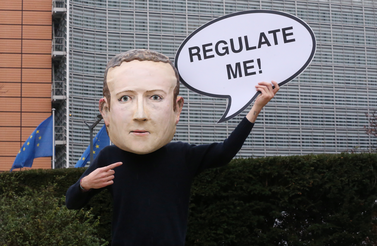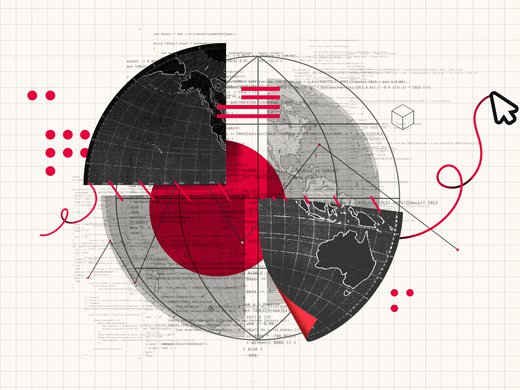The first anniversary of the January 6, 2021, attack on the US Capitol proved that concerns about the stability and future of the United States as a democratic republic have become a legitimate part of mainstream political conversations. In a few short years, the tone has gone from urgent concern, as with the 2016 pre-Donald-Trump-presidency book It’s Even Worse Than It Looks: How the American Constitutional System Collided with the New Politics of Extremism (about the increasing extremism of the Republican Party), to 2022’s apocalyptic How Civil Wars Start: And How to Stop Them (a scholarly book on the uncanny parallels between the present-day United States and pre-civil war countries across the world).
Even if the United States does not end up in a civil war, it’s practically impossible these days to find a serious thinker who believes that US democracy is in fine shape. Not only did the insurrection end a two-century tradition of a peaceful transition of power, it came against the background of the Republican Party’s ongoing descent into illiberalism and authoritarianism. The Republican Party now has more in common with the far-right parties found on the fringes of French and German politics than with a traditional right-wing party such as Canada’s Conservative Party (note: I first drafted that sentence before the federal Conservative Party decided to play footsie with the January 29, 2022, neo-Nazi-infused “FluTruxKlan” rally in Ottawa.) The state of democracy in the United States has gotten so bad that many analysts no longer consider it a full democracy.
This, of course, is an enormous issue, but in this digital corner of the world, it’s worth thinking about the implications for internet governance if the United States continues its slide toward autocracy.
Fears of authoritarianism, both established and incipient, have a particular resonance in internet-governance circles. The spectre of authoritarian China and Chinese companies controlling the internet — think the debate over fifth-generation technology — has haunted discussions of internet governance and platform regulation for years now. Charges of “digital authoritarianism” continue to dog attempts to regulate online companies, such as Germany’s NetzDG law.
Thinking about how an autocratic United States might affect internet and platform governance is a useful exercise, not only because it’s worth considering in and of itself. It forces us to work through our assumptions about how power and authority work in internet governance, especially as it relates to the relationship between states and businesses. Following these assumptions to their logical conclusions can take us to some interesting places.
Let’s go.
Formal Role, Informal Structural Power
Even though the internet was created in the United States, responding to US needs, people tend to think of the internet primarily in global terms. Formally, the United States no longer has an official role in maintaining the internet: in 2016, it relinquished responsibility for the Internet Protocol numbers and the Domain Name System to the global multi-stakeholder community. Internet governance tends to follow a multi-stakeholder model, in which states are treated as only one stakeholder among many, including engineers, companies and non-governmental organizations. That said, the Internet Corporation for Assigned Names and Numbers, the non-profit responsible for these functions, is registered in California and subject to US law. Outside of China, the dominant internet-based companies are pretty much all based in the United States.
At first glance, the lack of formal dominance would seem to mitigate the damage that an increasingly autocratic US regime could inflict on internet governance. Such an outcome would validate the principles underlying multi-stakeholder governance, which is explicitly designed to ensure that states are unable to impose partisan rules on the internet.
While appealing, the global internet story has a few weaknesses. In practice, the United States remains the indispensable internet actor. In international political economy terms, the United States possesses significant structural power, giving it the ability to shape the rules and norms within which other actors work.
American structural power means that what happens in the United States matters for the internet more than what happens elsewhere. January 2022 marked the tenth anniversary of the successful Stop Online Piracy Act protests. These protests targeted a pair of US copyright bills that critics claimed would “break the internet” (not American access to the internet, but the internet itself).
As Paul Keller, one of the people involved in that earlier protest, notes, this extraterritorial power is rooted, in part, in the size of the US market: companies, like the giants that dominate the online world, “have incentives to comply with rules that apply in sufficiently large markets, which means that regulatory regimes are often exported well beyond the jurisdictions where they have been originally enacted.”
The United States also uses its market power to convince other countries to implement its preferred internet governance policies via trade agreements — nobody wants to get shut out of the world’s richest market. This is how the issue of platform liability for content posted by users ended up in article 19.17 of the Canada-United States-Mexico Agreement (CUSMA), itself modelled on the controversial section 230 of the US Communications Decency Act. As Harvard University economist Dani Rodrik, among others, has noted, trade agreements aren’t really about tariffs anymore.
What happens in the United States matters to the world. There is no reason to believe that an autocratic United States wouldn’t succeed in reshaping the internet.
Markets Are Global, Companies Are National
These days, the European Union is playing a similar game, using the size of its market to fashion itself as a regulatory superpower through laws such as the General Data Protection Regulation. In doing so, the European Union is attempting to challenge an American status quo.
But the United States possesses a key asset that the European Union lacks: its own globally dominant internet companies.
These companies — think Amazon, Google and the other usual suspects — allow the United States to exert structural power indirectly but no less powerfully than with more direct legislative or treaty-based approaches.
The ramifications of structural power are often downplayed in internet governance debates. Digital rights activists have a tendency to call on global tech companies to stand up to what they see as illegitimate laws in authoritarian countries. The idea that companies can be effective enforcers of universal human rights is also at the heart of any number of platform governance proposals, from the human rights-centric framework proposed by former UN envoy David Kaye to the notion of digital constitutionalism being explored by Australian academic and Facebook Oversight Board member Nicolas Suzor.
No matter how tightly these companies may embrace international human rights law, there is little reason to believe that they would be capable of resisting an American autocratic turn.
To paraphrase international political economy scholar Susan Strange, markets may be global, but companies are national. Faith in corporate implementation of international human rights law as a bulwark against tyranny seems to be built on an American foundation, presupposing a democratic, human rights-focused United States.
The state-corporation relationship is not an authoritarian phenomenon; it’s a fundamental rule of global politics. The goal of agreements such as CUSMA article 19.17 isn’t to create a win-win global economy. Rather, it’s to tilt the playing field to favour your country’s companies.
In their book The Real Cyber War: The Political Economy of Internet Freedom — still the best book on the intersection of state and business power in internet governance — Shawn M. Powers and Michael Jablonski describe the mutually interdependent relationship between Washington and Silicon Valley as the “information-industrial complex.” As the term suggests, it mirrors another set of interdependent interests, the military-industrial complex.
This relationship allows US tech companies to influence US international economic policy. But it also creates a high level of dependence among these companies on the US state. This dependence is not only economic — US government contracts are worth billions — but political. The US Congress is the only elected body capable of effectively regulating big tech, and big tech knows it.
That these companies are uniquely responsive to their home government becomes clear when you look at, for example, whose calls Facebook CEO Mark Zuckerberg returns. Hint: Canadian Prime Minister Justin Trudeau’s not on the list. It also becomes clear when we consider how the role of an American social media platform in an actual genocide (in a place outside the United States) wasn’t enough to trigger sustained calls for reforms from the only body — the US Congress — with the power to regulate these companies.
Again, these tight nationalist links aren’t authoritarian; they’re normal politics.
Google Won’t Save Us
Thinking about these companies as American companies highlights a significant weakness in the view of online companies such as Facebook as “the new governors.” They may have emerged as significant global players, and the state-corporation relationship goes both ways.
However, American companies remain uniquely vulnerable to influence by their home country. Google can’t withdraw from the US market, and these companies depend on the state to open foreign markets via instruments such as trade agreements.
As Natasha Tusikov outlines in her book Chokepoints: Global Private Regulation on the Internet, these companies may be powerful, but powerful states are more than capable of forcing even Google and Amazon to do speech-limiting things that they wouldn’t otherwise do, such as engage in copyright and trademark enforcement. The pursuit of profit plays a role, but, ultimately, the definition, nature and limit of tech companies’ commitment to free speech and human rights are set in the United States.
The upside to all this is that if the United States continues down its path to autocracy, we should not expect its companies to lead the resistance. These are not progressive actors working to liberate the world; they are for-profit American companies.
Whether the United States goes full autocrat or remains a flawed democracy, tech companies will do what they have always done: with the support of the US government, they will attempt to dominate foreign markets in ways that suit their material interests and create an international economy conducive to American profits and values — whatever those may be. And there are always ways for companies to make money under authoritarianism.




